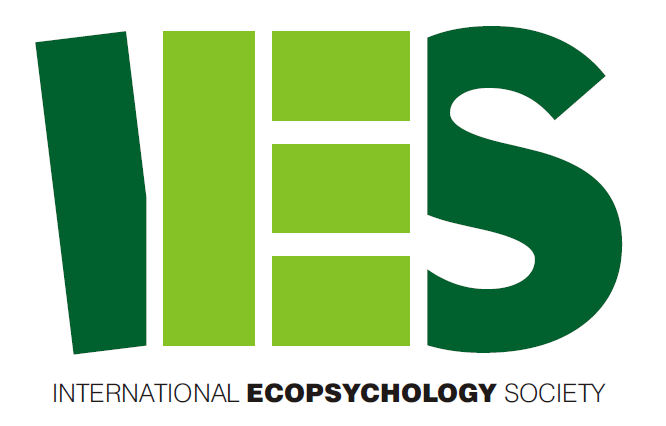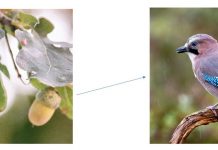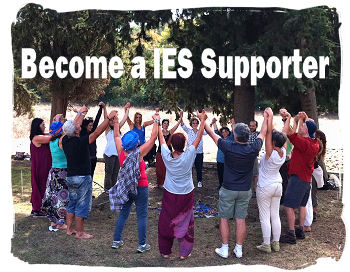In the opening years of the 21st century, we face enormous challenges. We can no longer afford the luxury of pursuing various intellectual and vocational disciplines apart from environmental and social realities. We must reform our economy and way of life towards a life sustaining society. To do this, we need a “ecoliterate” citizenry, aware of our interconnectedness with all living beings, and willing to act on that awareness. Now all education must include ecological education, and all psychology, ecopsychology.
Ecological literacy might be called “ecowisdom” because it encompasses such a broad array of understandings, knowledge, attitudes, and experience. I began using the term “ecoliteracy” to indicate the learning we need to seek in all dimensions of human life: intellectual, psychological, somatic, social, and spiritual. As someone developing ecoliteracy, I aspire to the following capacities:
- awareness of our interconnectedness and kinship with all life
- a sense of wonder and gratitude for the world
- a strong sense of physical and spiritual connection to land and place
- a widening of identification beyond the individual ego to the “ecological self”
- an understanding of basic concepts of ecology and systems thinking, and perceiving relationships among humans and all living systems through these lenses
- comprehension of the major ecological and social crises we face and their interrelationships
- the willingness to experience both the pain and joy of the world
- lived values of cultural diversity, equality, justice, and inclusiveness
- critical examination of prevailing paradigms, assumptions, and institutions
- collaboration for social transformation and non-hierarchical governance
- conservation of resources and energy; recycling, reusing, sharing, etc.
- consideration of environmental and social implications in all consumer choices
- attentiveness to wild nature for renewal and guidance
(…)Western psychology has virtually ignored our relationship to the natural world. In its definition of mental health, our connection to the source of life does not figure, nor is our destruction of our life support system included in its list of pathologies. It has failed to ask Paul Shepard’s rather obvious and haunting question: “Why does society persist in destroying its habitat?” Now the new discipline of ecopsychology addresses this failure and studies the human psyche within the larger systems of which it is a part. It explores how our cultural alienation from nature engenders not only careless and destructive behavior toward our environment, but also many common disorders such as depression and addiction. Psychotherapists within the movement recognize how their profession has blinded itself to the larger context of their clients’ lives and pathologized their pain for the world. These pioneers break new ground as they help clients find strength and meaning through experiencing their interconnectedness with all life, and acting on its behalf.
Ecopsychology invites psychotherapy practice to expand its focus beyond the inner landscape, to explore and foster the development of community, contact with land and place, and ecological identity… It invites us to hear the Earth speaking through our pain and distress, and listen to ourselves as if we were listening to a message from the universe.
Sarah Conn
Our interdependence with all life of Earth has profound implications for our attitudes and actions. To clarify these implications, and free us from behaviors based on outmoded notions of our separateness from nature, deep ecology arose, both as a philosophy and a movement. The term was coined in the 1970’s by Norwegian philosopher Arne Naess, a mountain climber and scholar of Gandhi.
In contrast to reform environmentalism, which treats the symptoms of ecological degradation – clean up a river here or a dump there for human well-being – deep ecology questions fundamental premises of the Industrial Growth Society. It challenges the assumptions, embedded in much Judeo-Christian and Marxist thought, that humans are the crown of creation and the ultimate measure of value. It offers us a broader and more sustainable sense of our own worth, as viable members of the great, evolving community of Earth. It holds that we can break free from the species arrogance that threatens not only ourselves but all complex life forms within reach.
We cannot genuinely experience our interrelatedness with all life if we are blind to our own human-centeredness, and how deeply embedded it is in our culture and consciousness.
Deep ecologist John Seed, an Australian rainforest activist, (…) points out that this liberation is more than an intellectual process.
“I am protecting the rainforest” develops to “I am part of the rainforest protecting myself. I am that part of the rainforest recently emerged into thinking.” What a relief then! The thousands of years of imagined separation are over and we begin to recall our true nature.This is, the change is a spiritual one, sometimes referred to as deep ecology.
Seed, Macy, Naess, Fleming. 1988.
Arne Naess has a term for the wider sense of identity that John Seed describes. He calls it the ecological self, and presents it as the fruit of a natural maturation process. We underestimate ourselves, he says, when we identify self with the narrow, competitive ego. “With sufficient all-sided maturity” we not only move on from ego to a social self and a metaphysical self, but an ecological self as well. Through widening circles of identification, we vastly extend the boundaries of our self-interest, and enhance our joy and meaning in life.
What humankind is capable of loving from mere duty or moral exhortation is, unfortunately, very limited… The extensive moralizing within the ecological movement has given the public the false impression that they are primarily asked to sacrifice, to show more responsibility, more concern, and better morals… [But] the requisite care flows naturally if the self is widened and deepened so that protection of free nature is felt and conceived of as protection of our very selves.
Seed, Macy, Naess, Fleming. 1988
A welcome and significant feature of this concept is the way it transcends the need to sermonize about our moral responsibilities to other beings. When we assumed that we were essentially separate, we preached altruism – the Latin term alter being the opposite of ego. This is not only philosophically unsound, from the perspective of deep ecology and other nondualistic teachings, but also ineffective.
* Ecopsychologist and psychosynthetist, student of Roberto Assagioli. She runs individual and group training and counseling courses near Mount Shasta in California.
Published in The Counselor, vol. 2, No. 1, June 2005, in Italy













